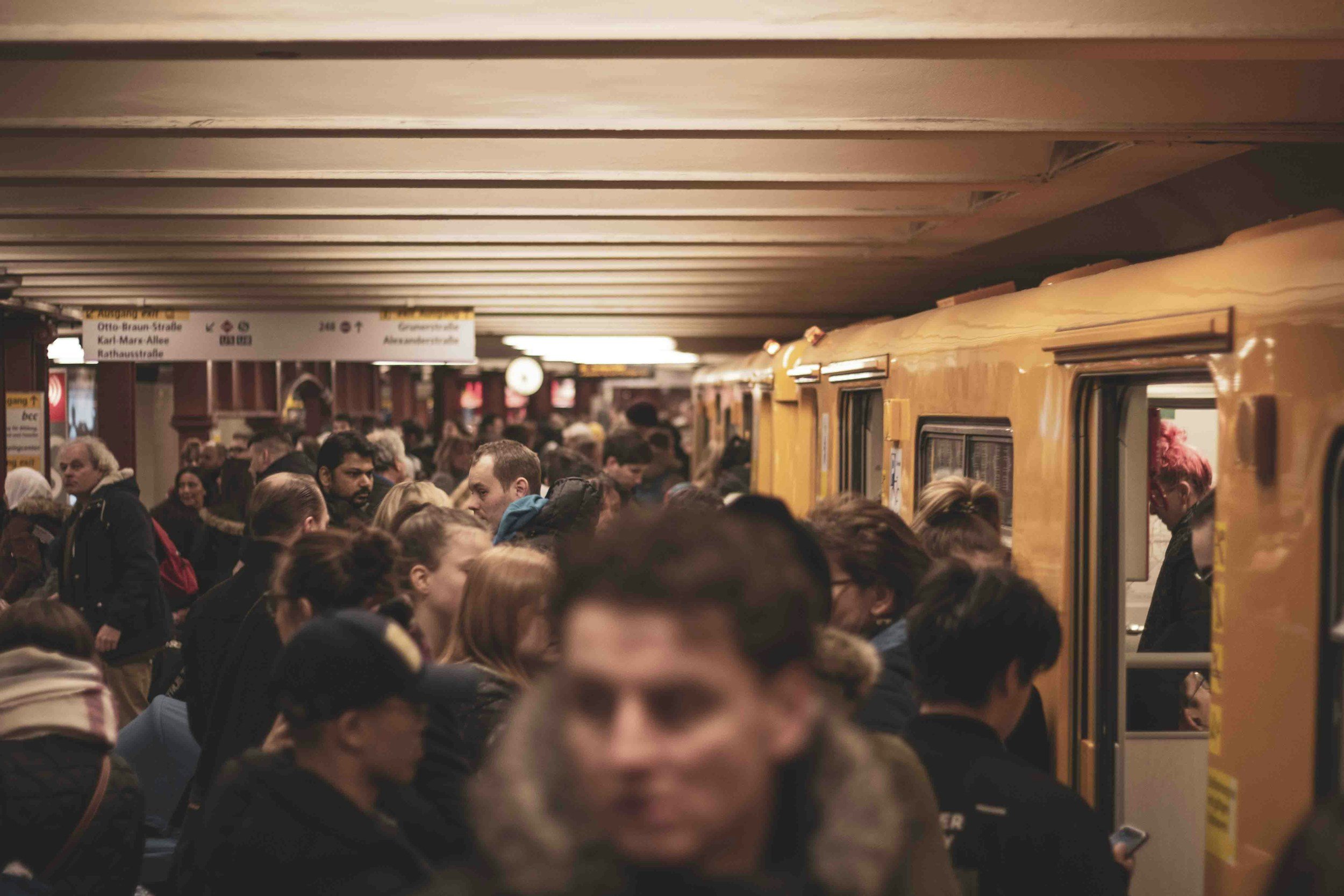Over the years, I've written extensively about the concept of busyness—both from a personal perspective and its broader implications for society. It is a bit strong to call it a Tyranny but it is not far short.
One of my main goals upon retirement was to reduce my busyness, and to a large extent, I have succeeded. However, I still find myself engaged in numerous activities, leading me to wonder if this is an intrinsic part of my nature. Interestingly, I also have a tendency towards laziness and self-absorption. I am quite a self reflective person so it is important for m to analyse myself and my motivations.
It seems that my tendency to stay busy is a complex interplay of my personality and the societal pressures to be involved in 'meaningful' activities.
Over the last few tears in particular I have taken great pleasure is disarming people when they always start conversation with ‘Are you busy’ or I see you are busy (usually from my social media presence) - by telling them I am NOT that busy and I have lots of spare time to read, walk, run and go on holidays. It seems to throw them. I do it as a way to discuss some of the points I raise below. Why do we validate ourselves by saying how busy we are? Surely in my mind an important person does not have to be busy all of the time. Indeed most of us seem to want to work really hard so that at some stage we can retire and stop. So why don’t we do some of that earlier in life when we have the energy to enjoy not working/ volunteering.
Being busy is not actually a badge of honour. So let’s explore why I feel this way.
**Why Do We Always Feel the Need to Be Busy?**
Validation and Self-Worth
For lots of folks, being productive is like a badge of honour. The more you get done, the better you feel about yourself and the more you feel valued by others. It’s this mindset that your worth is all about what you achieve. This is especially true in cultures that really value success and hard work.
When people tie their self-worth to productivity, they can feel empty when they’re not working. They might even feel guilty for just chilling out, thinking they’re not living up to their potential or letting others down. It’s a cycle: the more they do, the more they need to do to feel good about themselves.
I have lived with the consequences of a society that values presence and busyiness living with a spouse with a long term health condition that means they are often invisible and therefore not seen as so worthy - or even pushed out from volunteering because they cannot consistently engage!
This area is my biggest challenge. For most of my adult life I have had leadership roles that put my diary in great demand. I enjoy being with people and getting involved in learning, debate and discussion. I like to have my voice heard, so invites to speak, roundtables and forums where people care what I say I have realised is my downfall. With retirement comes stepping back and not being in demand quite so much. A future without people asking my opinion or for my leadership is something I am having to come to terms with! It is difficult. Let’s be honest I am not really that important anyway but becoming less so in my own little circles is disarming. But already I see others passing me in the ‘race’ and I need to learn to be more comfortable with that. I rationalise it but at emotional level I still struggle a little.
We need to validate our self worth in other ways. Do you have time to think and look after others? I now find having a coffee, doing some mentoring and passing on ideas from blogs like this are equally as rewarding. I’d like to help people shortcut to the Life Hacks!
### Avoidance of Uncomfortable Emotions
Sometimes, staying busy is just a way to dodge feelings we don’t want to deal with, like loneliness, sadness, or anxiety. By keeping every moment filled with activity, there’s no room to sit with these emotions or think about deeper issues.
This is known as experiential avoidance. It’s about doing anything to steer clear of negative thoughts or feelings. It might give temporary relief, but in the long run, it can backfire. Instead of processing emotions, people get stuck in a loop of avoidance that actually makes things worse. Of course this can also go the other way and people can hide or lock themselves away if the anxiety is too bad. I am increasingly seeing this in people. You need to talk to somebody.
### Social and Cultural Conditioning
The need to always be busy is also shaped by our social and cultural environment. In many societies, being constantly on the go is seen as a sign of success. From a young age, people are taught that hard work and being active are the keys to being a "good" or "worthy" person. This can lead to a belief that rest is lazy and that success requires nonstop effort.
There is plenty of research in this area that confirms this bias. We look up to people who seem busy, or buy from busy people. It even happens when choosing a retsaurant. Do you head tot he busy one or the empty one?
Breaking this cycle is tough because of the pressure from family, friends, and society to keep pushing, even if it’s at the expense of well-being. Social media makes it worse, with everyone sharing their busy lives and achievements. The fear of missing out (FOMO) drives people to stay busy to keep up.
I love challenging this perception. Let me repeat. I am not actually that busy most of the time. I have had time to read about busyness and write this blog on a Monday morning. I guess I could have just gone for a walk instead of writing but I do enjoy reflecting on self improvement as part of my self compassion. I go on holiday for a week every 5-6 weeks to make sure I stay away from ‘work’ and get into the countryside and walk
### The Drive to Control
For some, staying busy is a way to feel in control. When life feels uncertain, controlling your schedule can make things feel more secure. This is common among people who are perfectionists or have high-functioning anxiety. Always being busy gives a sense of structure and purpose, even if it’s not always productive.
But this need for control can lead to problems. When life feels unpredictable, people might increase their busyness to manage their environment, leading to burnout and anxiety.
### Existential Avoidance
At a deeper level, constant busyness can be a distraction from big life questions about purpose and mortality. This is known as existential avoidance. Being busy all the time leaves little room for reflecting on these matters, but it can also lead to detachment from your deeper values and goals.
I get caught between these. I do ask these big questions and so when I am busy (Yes it is fine to be busy sometimes) it is for a purpose.
---
**The Downsides of Constant Busyness**
### Burnout and Fatigue
Always being on the go can lead to physical and mental exhaustion - burnout. Symptoms like fatigue and irritability make it hard to stay productive in the long run. Recovering from burnout is tough and can lead to chronic stress and fatigue. I know when I am burnout as I get irritable!
### Increased Stress and Anxiety
Constant busyness can raise stress levels and lead to chronic anxiety. The pressure to keep achieving can create a persistent sense of inadequacy, impacting mental health and increasing the risk of depression and insomnia. Of course some stress is good.
### Strained Relationships
When work always comes first, relationships can suffer. Friends and family may feel neglected, leading to feelings of isolation. This focus on productivity over connection can weaken personal bonds and create tension.
### Reduced Enjoyment and Fulfillment
Constant busyness can lead to a less satisfying life. Focusing solely on productivity means missing out on hobbies, relaxation, and quality time with loved ones. This can create feelings of emptiness, even when you "seem" successful.
### Negative Physical Health Effects
Chronic stress from constant busyness can harm your body, increasing the risk of health issues like weakened immune function and heart disease. Skipping sleep and self-care can lead to serious long-term health problems.
So what do we do?
**How to Break the Cycle and Find Balance**
### Reframe Rest as Productive
Downtime is crucial for recharging and boosting creativity. Instead of seeing rest as a waste of time, view it as an investment in your health. Ask yourself how you can recharge to feel more present and enjoy life.
My wife has #ME. Downtime and rest is an absolute necessity. She finds it hard because she is one of those who knows there is always a household job to be done. She can’t ignore dust like I can! Trying to be restful for busy people can in fact be quite stressful in itself.
### Start Small with Mindfulness
Mindfulness doesn’t have to mean long meditation sessions. It can be as simple as taking a few minutes each day to sit quietly and check in with yourself. Notice any urges to fill your time and take a few deep breaths. The idea is to start feeling comfortable with being still.
### Set Boundaries with Work and Social Life
Sometimes we’re busy because we keep saying "yes" to everything. Learning to say "no" is a game-changer. Set some boundaries, like logging off work at a specific time, scheduling “no plans” days, or limiting social events each week.
### Shift Your Focus to Hobbies You Truly Enjoy
Staying busy doesn’t mean you’re enjoying what you’re doing. Make time for activities that genuinely bring you joy or relaxation, like painting or reading. It’s a great way to stay engaged without feeling pressured to be "productive."
### Talk to a Therapist if Needed
If finding balance is a struggle, consider talking to a therapist. A mental health professional can help you understand the deeper reasons behind your need to stay busy and support you in building healthier habits. This is all abit new to me. I am pretty self reliant and resilient, but I recognise this may work for many people. Some really close friends say how much they have benefited.
### Look after yourself and your body
Take time in your day to build in 30 minutes of physical activity. Walk, stand, run, swim. Move regularly. Even at my busiest periods in life as an MP I carved out time in the dairy to play 5-a-side, got the gym 3 times a week and play rugby. I still manged to work 45-60 hours a week around this. It is vital for our wellbeing that we don’t give into he tyranny of the workplace. I get this is not possible for everyone in many jobs when they are also balancing commuting and family commitments. So for many much of this may feel like a middle class luxury. I get that, but I do think it is even more important to find time and space to eat and live well with a highly stressed situation.
### Practice Self-Compassion
Remind yourself that you’re enough, even when you’re not doing anything. Self-compassion is about treating yourself with the kindness you’d offer a friend. It might feel weird at first, but it’s freeing to recognize that your worth isn’t tied to your productivity.
---

